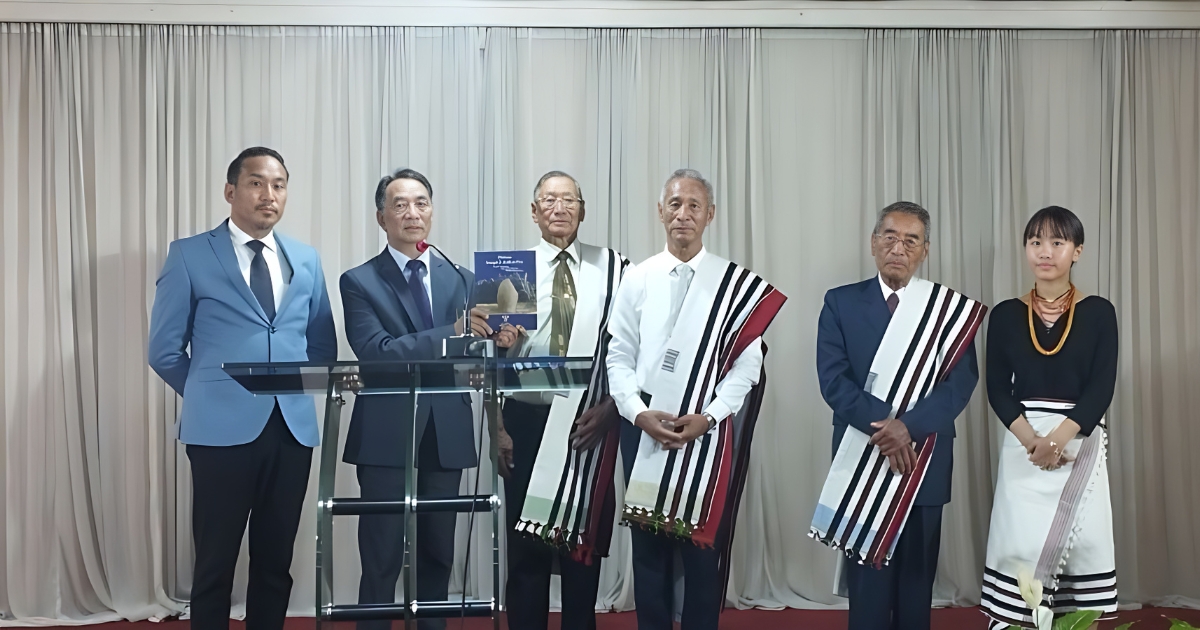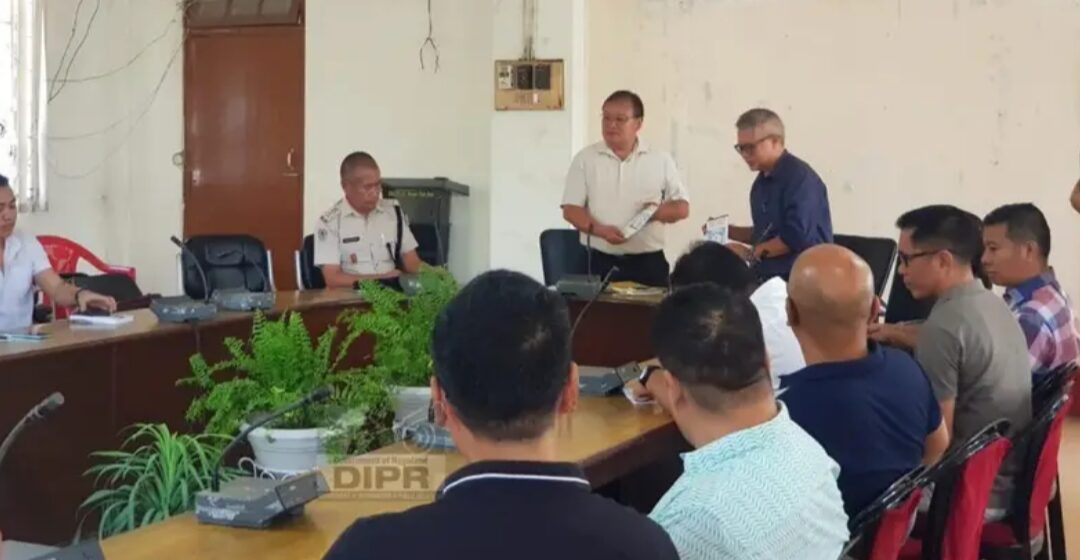In an effort to safeguard the invaluable cultural heritage of the Naga people, a book titled “Pfutsau Nanyü and Kelhou Dze (Forefather’s Religion and History)” has been unveiled. The book, written entirely in the Tenyidie language, was released on 15 April 2024, at the De Oriental Grand hotel in Kohima, Nagaland, India.
The book is a collaborative work by three authors: Meguo-o Mechülho, Medoselhou Keretsü, and Dr Shürhozelie Liezietsu. Their primary goal is to document and pass down the knowledge of the Naga ancestors’ way of life, religion, and history to the present and future generations.
Also Read: Dimapur’s Railway Land Encroachment Crisis Jeopardises Rs. 283 Crore Redevelopment Project
The release event was graced by Prof D Kuolie, Secretary General of Ura Academy, who commended the book as a foundational work that will be cherished by scholars, researchers, and the Naga community for years to come.
Dr Shürhozelie Liezietsu clarified that the book’s intention is not to promote the practise of ancestral traditions but rather to preserve the knowledge for the current generation.
The authors expressed their worry that if not documented, the realities and lifestyles of their forefathers could be lost forever, making this book a vital step in preserving the Naga people’s roots.
Also Read: Priyanka Chopra Shares Rare Photo with Vijay as Thamizhan Turns 22
Meguo-o Mechülho stressed the significance of passing on the valuable practises and values of their ancestors to the younger generation. The book acts as a link between the past and the present, ensuring that the wisdom and experiences of the Naga forefathers are not lost in the sands of time.
The decision to release “Pfutsau Nanyü and Kelhou Dze” in the Tenyidie language showcases the authors’ dedication to preserving their cultural heritage. By objectively documenting the ancient way of life, the book offers a valuable resource for scholars in various fields, including social sciences, humanities, and language.
Also Read: Tribalism in Nagaland: Understanding Its Impact and Challenges
As the Naga community continues to evolve and adapt to modern times, works like this book play a crucial role in maintaining a connection to their rich history and cultural identity.
The authors’ commitment to preserving the knowledge of their ancestors for future generations is praiseworthy and provides an example for other communities to emulate.
The release of this book marks a significant milestone in the preservation of the Naga people’s cultural heritage. It is a reminder of the importance of documenting and sharing the knowledge and experiences of our ancestors, ensuring that their wisdom and way of life are not lost to the passage of time.
Also Read: Tsungiki-Philimi Community Fishing: Uniting Sumis and Lothas for Two Decades
The collaborative effort of the three authors, Meguo-o Mechülho, Medoselhou Keretsü, and Dr Shürhozelie Liezietsu, is a shining example of the power of community and the importance of working together to preserve our cultural heritage. Their dedication and hard work have resulted in a book that will undoubtedly become a treasured resource for generations to come.




